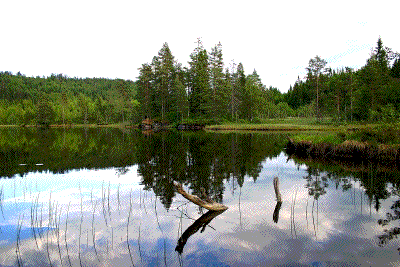|




|
Place is much more than a fond "home where the heart is"; it is more than some regionalist backdrop to a Thomas Hardy novel or a Robert Frost poem. In fact, place always transcends "setting": it is a central determinant of human discourse, of human culture, and of human identity.
Statement(s) of Purpose: The UNL English Department includes a group of scholars who subscribe to the tenets above, who consciously bring to bear a place-based, eco-conscious agenda to their writing and teaching, whether that place be the U.S. Great Plains or desert Southwest, be it Canada or the Caribbean, be it city or country, or some place in between. (And there are a lot of places like that.) --TCG
Mary K. Stillwell offers the following clarification:
"For me, Ecocriticism, in its very essence, includes two inseparable aspects: community (which includes teaching) and literary studies. 'Home,' 'eco,' from the Greek word oikos, coupled with logos, 'department' or 'area,' gives us ecology, or as one of my students defined it, 'home study.' The word 'ecology' came to us by way of German zoologist Ernst Haeckel, who used it to describe 'the comprehensive science of the relationship of the organism to the environment.' The term 'Ecocriticism,' attributed to William Rueckert, shows up a hundred and some years later, and describes a way of looking at all facets of a literary work, including the environment (natural and built, social and cultural). By taking this view, we, as teachers and critics of literature, are acknowledging that homo sapiens is a member of the same family as all other living creatures for whom our homeland is earth.
"Under an eco-rubric, the fundamentals of pedagogy are an enacted pedagogy, one that includes the teacher's and the student's common and continuing desire to know the world (à la Freire's dialogical practice)."
Expanding upon place-based pedagogy, specifically, we offer the words of our own Robert Brooke, from his Introduction to Rural Voices:
"First, place-conscious education requires active students, and hence builds on pedagogical movements for student engagement and community inquiry. Since students are supposed to be learning how to participate fully in their local regions, students need classrooms where they have a say in the civic work of education. Place-conscious students need experience identifying local issues they want to affect and the knowledge (local, regional, national, international) they need in order to contribute. They need experience negotiating with other students and community members in developing and completing meaningful projects. Finally, they need experience in self-reflection and evaluation—in the skills of self-awareness which enable them to step back from their interactions to celebrate achievements, critique performance and outcomes, and imagine strategies for improvement.
"Second, in order to foster a place-conscious citizenry, place-conscious education centers schooling in a deep understanding of local place, spiraling outward to include more distant knowledge in all areas of the curriculum. While all people are certainly citizens of the world, place-conscious educators believe people learn to be active citizens by engaging with local issues which they can actually affect and which directly influence the quality of life in their community. Since understanding most local concerns involves connections to regional, national, and even international knowledge, place-conscious education is not necessarily parochial. Since understanding most local concerns also involves making connections between different kinds of knowledge and across content areas, place-conscious education tends to be interdisciplinary.
"Third, place-conscious education is aimed at a specific kind of citizenry. Place-conscious citizens should be people who can live well in intradependence--that is, people who know enough about their natural and cultural region to fashion lives that enhance the communities located there. Place-conscious citizens are locally active, engaged in community decision making for their region through their work, schools, local government, and civic organizations. Place-conscious education thus provides an alternative to the focus of mainstream education on the creation of migratory, displaced citizens, equipped with marketable abstract skills and knowledge but lacking a sense of living well in local community."

Words Taking Place" web pages:
Created by TCG, 1/1/07
Last modified: 10/4/07
|
|

|

